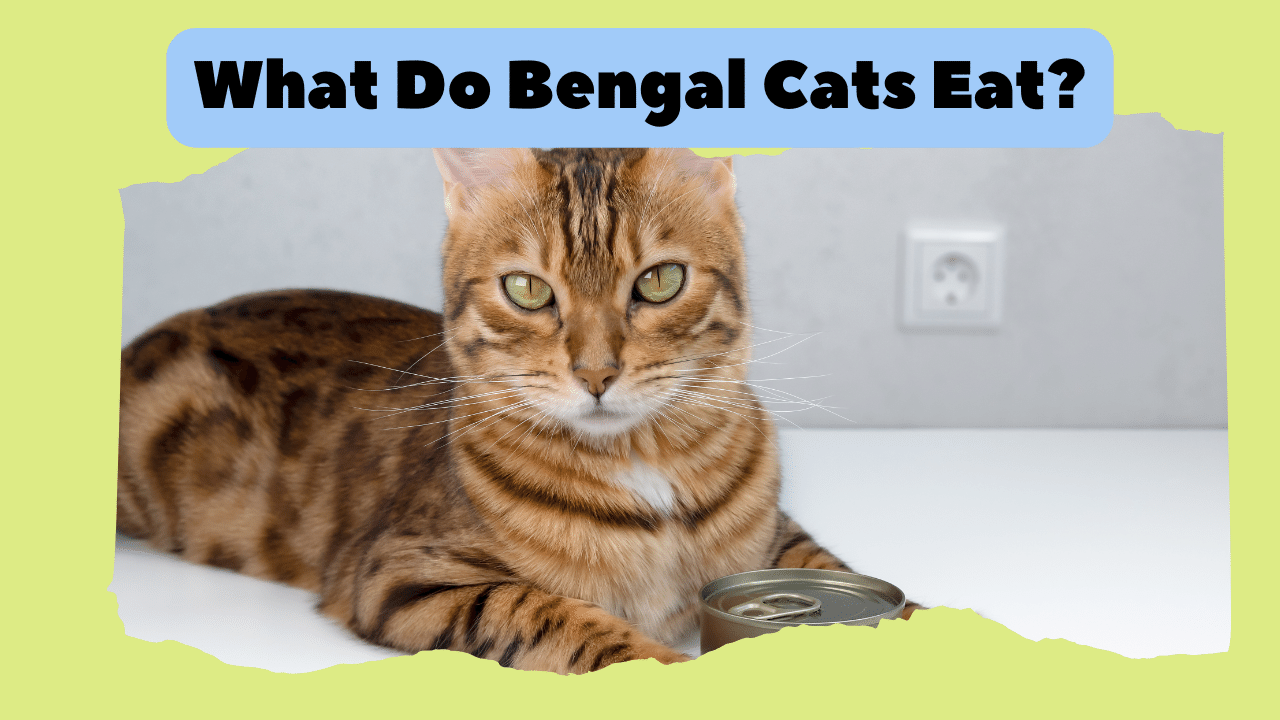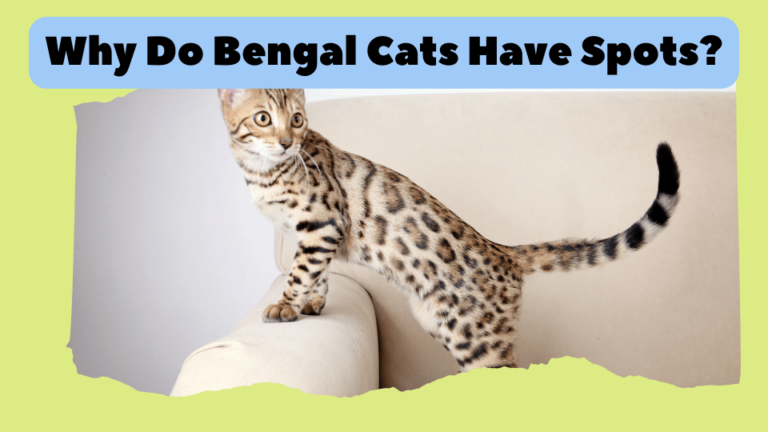What Do Bengal Cats Eat: A Comprehensive Guide
Welcome to our comprehensive guide on what Bengal cats eat! It’s important to understand their dietary needs to ensure they live a healthy and happy life.
Bengal cats are known for their striking appearance and playful personality, and providing them with proper nutrition is key to supporting their overall well-being. In this guide, we will cover everything you need to know about what to feed your Bengal cat, including their natural diet, the role of animal protein, the importance of animal fat, the essential vitamins and minerals they need, their energy requirements, debunking the carbohydrate myth, practical feeding tips, reviewing the best cat foods, and addressing common dietary concerns.
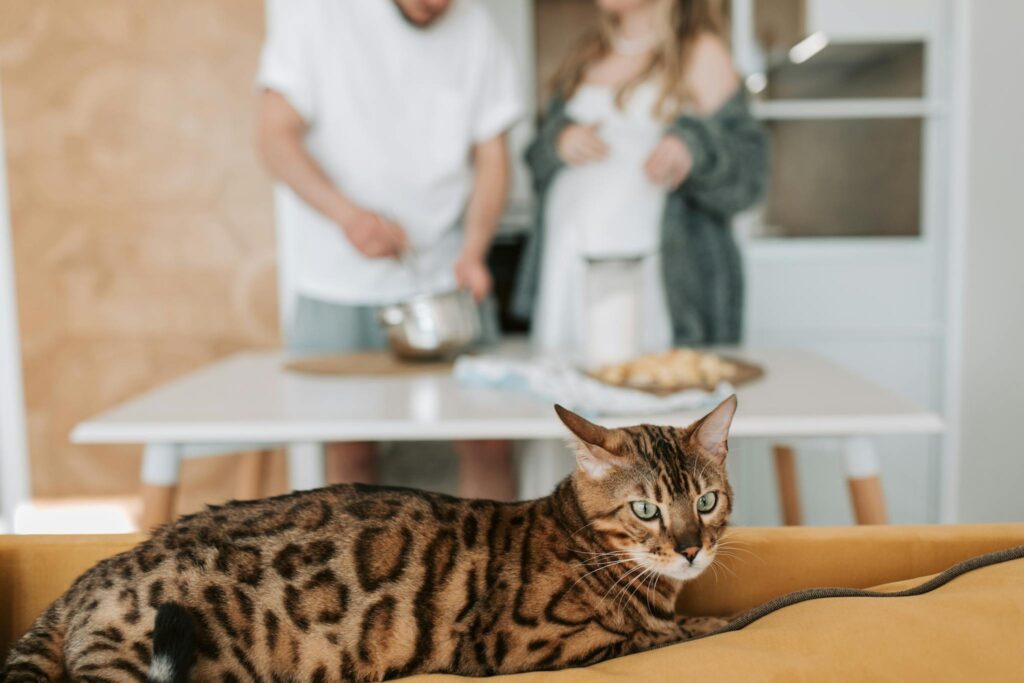
Understanding the Bengal Cat’s Natural Diet
Bengals have always had a strong desire for meat, which can be traced back to their ancestors, the Asian leopard cats. As obligate carnivores, their natural diet primarily consists of raw meat. In the wild, their prey would typically include small mammals, birds, lizards, and insects. This biological predisposition makes it important for Bengal cat owners to understand the specific nutritional needs of their feline companions in order to provide a diet that aligns with their natural instincts and promotes optimal health.
The Role of Animal Protein in the Bengal Cat’s Diet
Animal protein plays a crucial role in the diet of Bengals. It is essential for the development and maintenance of their lean muscle mass. A diet high in animal protein ensures that your kitty receives the necessary amino acids to support their growth and repair. When it comes to protein sources, raw meat is often preferred due to its high nutritional value and similarity to what Bengal cats would consume in the wild. However, if raw meat is not readily available or practical for you, there are high-quality commercial pet foods specifically formulated to meet your cat’s diet needs.
When selecting pet food, it’s important to carefully read the labels and choose products that list animal protein sources, such as chicken, turkey, or fish, as the main ingredients. Avoid foods that rely heavily on plant-based protein sources, as Bengal cats have a higher requirement for animal protein. The quality of the protein also matters, so opt for brands of dry food that prioritize high-quality animal protein sources.
Provide a Mix of Wet and Dry Food
To ensure a well-balanced diet, it’s recommended to provide a mix of wet and dry cat food. Wet food, such as canned food or raw cat food, has the advantage of higher moisture content, which can help prevent urinary tract issues. Dry food, on the other hand, can be beneficial for dental health, as the kibble can help clean their teeth as they chew. As always, consult with your veterinarian to determine the best protein sources and feeding regimen for your Bengal cat.
- Animal protein sources are crucial for the development and maintenance of lean muscle mass.
- A diet high in animal protein is vital for meeting nutritional needs.
- Bengal cats require a diet abundant in animal protein for proper growth and development.
- Animal protein sources are essential for supporting your cat’s immune system.
- Bengal cats derive essential fatty acids from animal protein sources, which are crucial for their health.
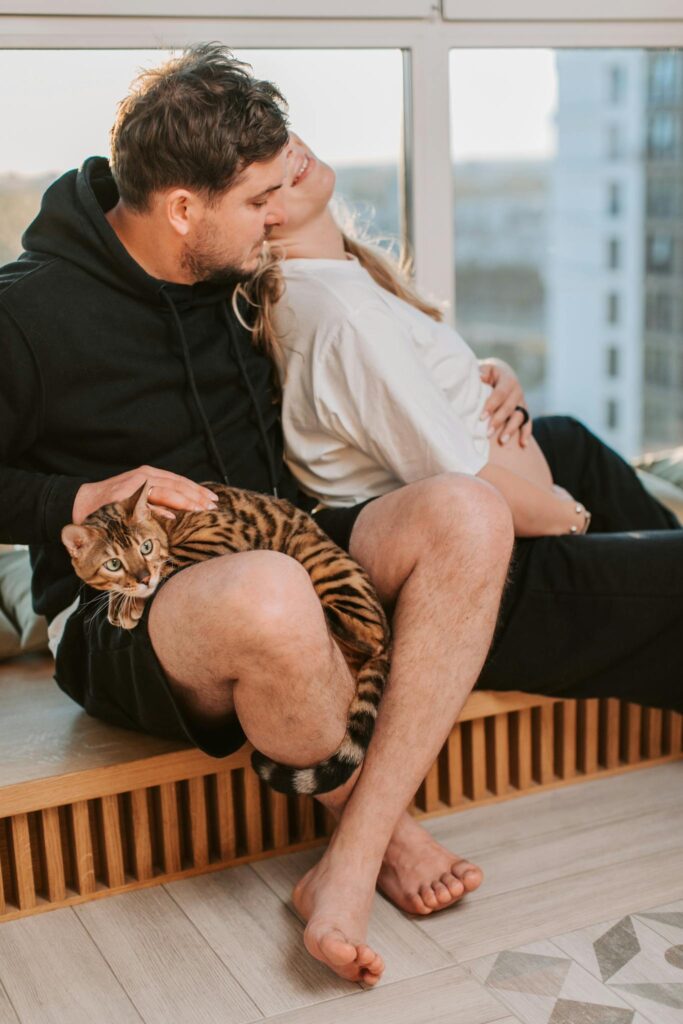
Importance of Animal Fat for Bengal Cats
Animal fat also plays a significant role in the diet of Bengal cats. It provides them with a concentrated source of calories, which is essential for their high-energy needs. Animal fat is particularly important for Bengal cats due to their active lifestyle. It helps them maintain their energy levels and supports their overall health and well-being.
In addition to providing energy, animal fat is a source of essential fatty acids, including omega-3 and omega-6 fatty acids. These fatty acids are crucial for various bodily functions, including maintaining healthy skin and a lustrous coat. They also support the immune system, reduce inflammation, and promote optimal brain function.
To ensure that your cat receives an adequate amount of animal fat, select pet foods that list sources of animal fat, such as chicken fat or fish oil, in the ingredient list. Avoid products that rely heavily on plant-based fats, as Bengal cats have a higher requirement for animal fat. Consulting with your veterinarian can help you determine the optimal amount of animal fat to include in your Bengal cat’s diet.
- Animal fat is an important energy source for the highly active Bengal cat breed.
- Adequate animal fat in a Bengal cat’s diet helps maintain healthy skin and a lustrous coat.
- Animal fat provides Bengal cats with the necessary calories to sustain their high activity levels.
- Bengal cats require animal fat for the absorption of fat-soluble vitamins.
- Including animal fat in a Bengal cat’s diet supports their overall health and well-being.
Why are Vitamins and Minerals Essential?
Vitamins and minerals are essential for supporting a Bengal cat’s overall health and well-being. These micronutrients play a crucial role in various bodily functions, including maintaining a strong immune system, promoting proper bone health, and supporting the healthy functioning of organs and tissues. Here are a few key reasons why vitamins and minerals are important:
- Vitamins and minerals support the cat’s immune system, helping to defend against illnesses and infections.
- Essential vitamins and minerals are necessary for promoting optimal health in Bengal cats, ensuring they receive the nutrients they need to thrive.
- Proper levels of vitamins and minerals in a Bengal cat’s diet contribute to their overall well-being, helping them maintain optimal health throughout their lives.
- Vitamins and minerals play a crucial role in maintaining the bone health of Bengal cats, helping to prevent issues like hip dysplasia and progressive retinal atrophy.
- Bengal cats require a diet rich in vitamins and minerals to prevent nutritional deficiencies, which can lead to health issues and hinder their quality of life.
- When selecting cat food for your Bengal cat, carefully review the nutritional information and choose products high in vitamins and minerals. Additionally, by incorporating a variety of foods into their diet, you can ensure they receive a wide range of nutrients.
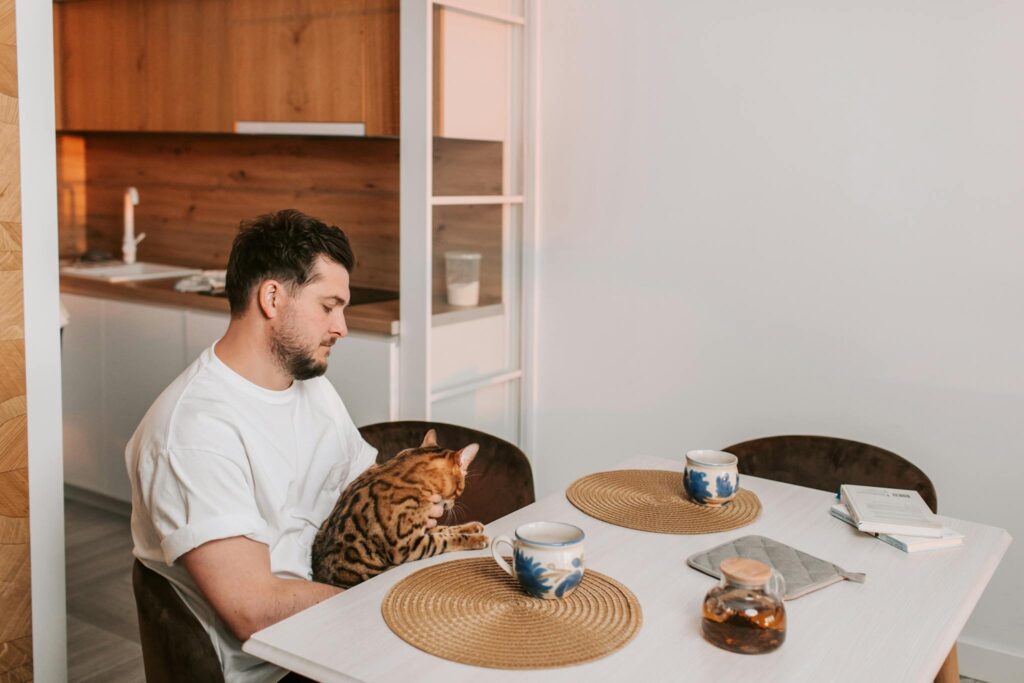
Decoding the Dietary Needs of an Active Bengal Cat
Bengal cats are known for their high energy levels and active nature. To keep up with their energetic lifestyles, it’s essential to understand and meet their dietary needs. Feeding your cat a diet that caters to their activity levels and energy requirements is crucial for their overall health and well-being. By providing them with the right balance of nutrition, you can ensure they have the necessary fuel to stay active, playful, and happy.
The Energy Requirements of The Bengal Cat Breed
Bengal cats have higher energy requirements compared to other feline breeds, thanks to their active lifestyle and playful nature. Meeting their energy needs through proper nutrition is vital to keep them healthy and thriving. The calorie intake of Bengal cats can vary based on factors such as age, size, and activity level, but on average, an active adult Bengal cat may require between 200-400 calories per day.
To ensure that your cat receives the right amount of calories, consult with your veterinarian for personalized guidance. They will consider your cat’s specific needs and recommend an appropriate daily calorie intake. By feeding your Bengal cat the right amount of calories, you can provide them with the energy they need for their daily activities and play sessions.
It’s important to note that while Bengal cats have high energy requirements, it’s equally important to monitor their weight and prevent obesity. Overfeeding can lead to weight gain, which can impact their overall health and increase the risk of conditions like hypertrophic cardiomyopathy. Regular check-ups with your veterinarian can help you maintain a healthy weight for your cat and make any necessary adjustments to their diet.
- The energy requirements of Bengal cats necessitate a diet rich in high-quality protein and fat sources.
- High-energy foods are essential for fueling the active and playful nature of Bengal cats.
- Meeting the energy requirements of Bengal cats is crucial for supporting their active lifestyle and overall health.
- A diet tailored to meet the high energy needs of Bengal cats is essential for their vitality and well-being.
- Providing Bengal cats with a diet that meets their energy needs is essential for their health.
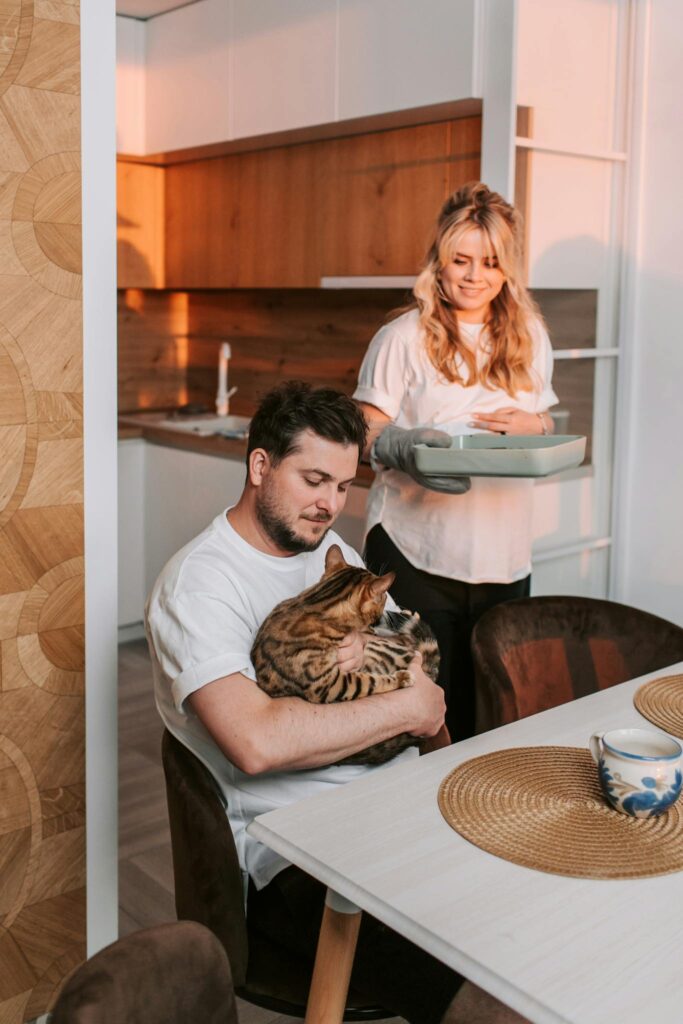
The Impact of Food on a Bengal Cat’s Untamed Activity Levels
The food you provide to your Bengal cat can have a significant impact on their activity levels. Proper nutrition plays a key role in providing them with the necessary fuel to stay active, agile, and playful. Here’s how food can influence a Bengal cat’s activity levels:
- Nutrition-rich food provides Bengal cats with the required energy to support their high activity levels.
- Optimal nutrition from a balanced diet supports the natural prey drive of Bengal cats, which contributes to their activity levels.
- By providing high-quality cat food, you can enhance the overall health and energy levels of Bengal cats.
- A well-balanced diet helps maintain their muscle mass, promoting agility and physical capabilities.
- Proper nutrition can also contribute to maintaining a healthy weight, allowing them to engage in high-energy activities without feeling sluggish or fatigued.
- To ensure that your Bengal cat remains active and energetic, feed them a diet that aligns with their nutritional needs. Consult with your veterinarian to determine the optimal diet for your Bengal cat’s activity levels, age, and overall health. Remember to always provide fresh water and maintain a feeding schedule that suits your cat’s habits.
Debunking the Carbohydrate Myth in a Bengal Cat’s Diet
There is a common misconception that cats, including Bengal cats, require a high-carbohydrate diet. In reality, Bengal cats have low carbohydrate tolerance, and their dietary needs are primarily focused on protein and fat. While carbohydrates can provide a source of energy, excessive consumption of carbs can lead to health issues. It’s essential to debunk this myth and understand how carbohydrates can affect your cat’s health.
Understanding the Unnecessary Carbohydrate Ingredients
When it comes to cat food, unnecessary carbohydrate fillers are commonly found in commercial foods. These ingredients, such as grains like corn, wheat, and soy, are often used as inexpensive fillers. While they may help bind the food together, these carbohydrates offer little nutritional value to Bengal cats. In fact, an excessive intake of carbohydrates can lead to weight gain, diabetes, and other health issues in cats.
To ensure that you’re providing your Bengal cat with a healthy diet, opt for cat foods that are free of unnecessary carbohydrate fillers. Look for products that prioritize high-quality animal protein sources, such as chicken or fish, as the main ingredients. Minimizing the intake of unnecessary carbs can help support your Bengal cat’s overall health and prevent potential health issues.
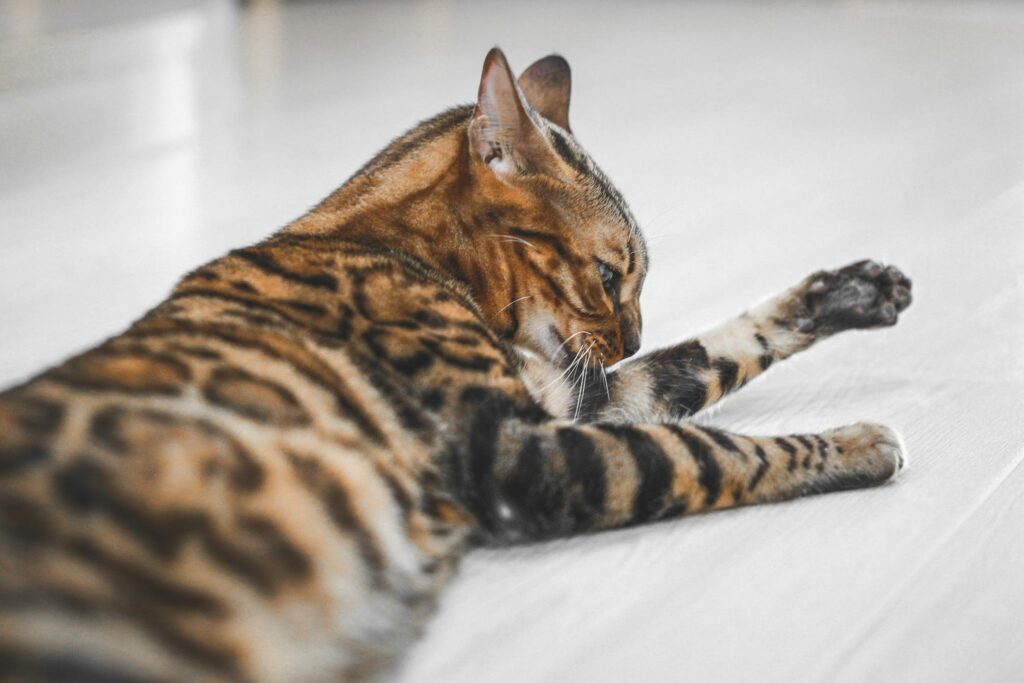
How Carbs Affect Your Bengal Cat’s Health
Excessive carbohydrate consumption can have adverse effects on a Bengal cat’s health. While they can metabolize small amounts of carbs, their bodies are not designed to process large quantities of carbohydrates. Here’s how carbs can affect the health of your cat:
- High-carb diets can contribute to weight gain, which puts extra strain on their joints and increases the risk of conditions like hip dysplasia.
- Bengal cats are prone to developing progressive retinal atrophy, which can be accelerated by high-carbohydrate diets.
- Excessive carbohydrate intake can lead to a higher caloric intake, increasing the risk of obesity and related health issues.
- Cats, including Bengal cats, have a limited ability to digest plant-based carbohydrates, which can result in digestive issues such as diarrhea, gas, and bloating.
- High levels of carbs in cat food can also lead to food allergies, causing allergic reactions that may manifest as skin irritations, diarrhea, or vomiting.
- To prioritize your Bengal cat’s health, choose cat foods that have lower carbohydrate content and focus on animal protein sources. Always consult with your veterinarian to ensure you’re providing a diet that meets your cat’s specific nutritional needs.
Practical Nutrition Tips to Feed Your Bengal Cat
Feeding your Bengal cat a proper diet doesn’t have to be complicated. With a few practical tips, you can ensure that your feline companion receives the nutrition they need to thrive.
Feeding Guidelines for Bengal Cats
Feeding your Bengal cat at appropriate intervals and providing them with a well-balanced diet is essential for their health and happiness. Here are some feeding guidelines to follow:
- Offer wet products, such as canned food or raw cat food, to ensure they receive enough moisture in their diet, preventing dehydration.
- Opt for foods with high animal protein content, as this is essential for their health and nutritional needs.
- Consider providing raw cat food, which mimics their natural prey diet and can have numerous health benefits.
- Look for commercial cat foods that provide optimal nutrition for Bengal cats, particularly those formulated for their breed’s unique needs.
- Check the nutritional information on cat food labels to ensure high protein content, quality animal protein sources, and proper fat levels.
- Consider incorporating supplements, such as fatty acids, into their diet to support their immune system and overall health.
- By following these feeding guidelines, you can provide your Bengal cat with a well-rounded diet that meets their nutritional needs at every stage of life.
Recommended Feeding Schedule for Optimal Health
Establishing a regular feeding schedule and ensuring proper portion control is crucial for maintaining optimal health in Bengal cats. Here are some key tips for creating a recommended feeding schedule:
- Divide their daily food intake into several small meals throughout the day. This mimics their natural hunting behavior and prevents overeating.
- Feed them at consistent times each day to establish a routine, as cats thrive on predictability.
- Monitor their weight and adjust their food quantities accordingly. Overfeeding can lead to obesity, while underfeeding can result in nutritional deficiencies.
- Avoid feeding your Bengal cat dairy products, as many cats are lactose intolerant and may experience digestive issues.
- Offer high-quality canned food that contains high moisture content. Cats have a low thirst drive, so wet food helps keep them hydrated, especially if they don’t drink enough water.
- Serve their food at room temperature, as cats are sensitive to the temperature of their food. Cold food straight from the refrigerator may be less appealing to them.
- By following a recommended feeding schedule, you can better manage your Bengal cat’s portion sizes, weight, and overall health.
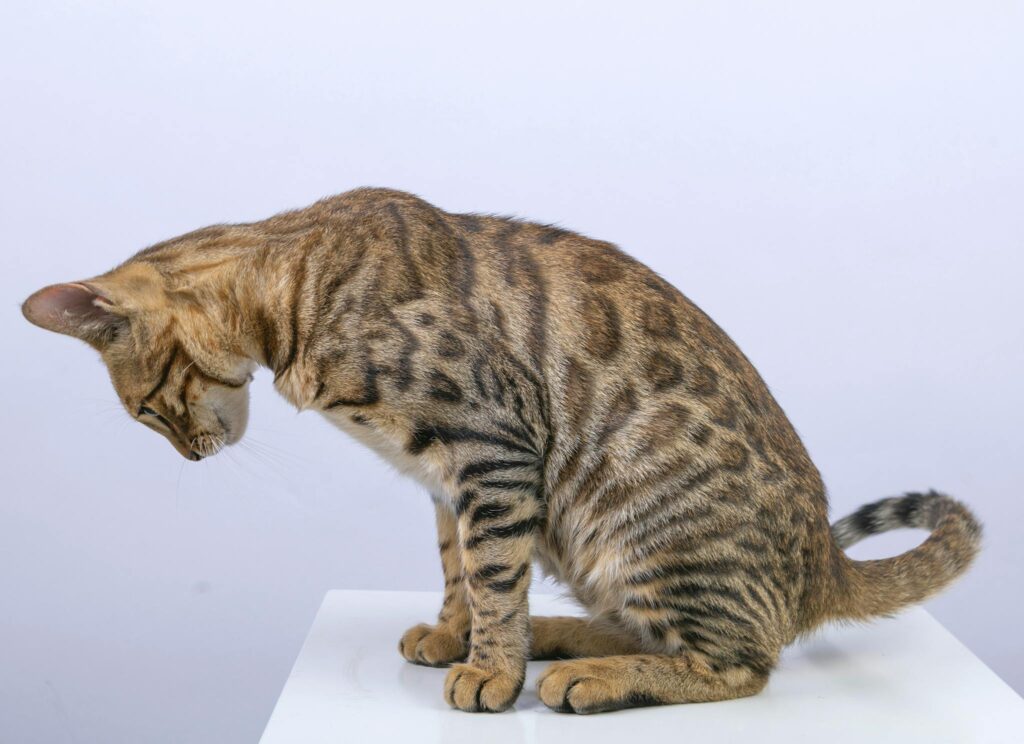
Reviewing the Best Cat Foods for Bengal Cats
With an abundance of cat food options available, choosing the best cat food for your Bengal cat can seem overwhelming. However, there are certain key factors to consider when making your selection. Here’s a look at what to prioritize when reviewing cat foods for your Bengal cat.
Key Ingredients to Look For
When reviewing cat foods for your Bengal cat, pay attention to the key ingredients listed on the label. Here are some key ingredients to look for:
- Opt for cat foods with high-quality animal protein sources, such as chicken, turkey, or fish, listed as the first ingredient. Animal protein is crucial for Bengal cats’ nutritional needs.
- Choose foods that include taurine, an essential amino acid for feline companions. Taurine supports heart health, vision, and reproductive function in cats.
- Consider both wet food and dry food options. Wet food, with its higher moisture content, helps keep cats hydrated, while dry food can support dental health.
- Look for cat foods that contain added supplements, such as vitamins and minerals, to ensure your Bengal cat receives all the necessary nutrients for optimal health.
- Avoid cat foods that contain unnecessary additives or fillers, such as artificial colors, flavors, or preservatives.
- By focusing on these key ingredients, you can narrow down your options and select cat foods that meet the nutritional needs of your Bengal cat. Consulting with your veterinarian can also provide valuable insights and recommendations specific to your cat’s needs.
Analyzing Nutritional Information on Cat Food Labels
Analyzing the nutritional information on cat food labels can help you make informed choices about the products you buy for your Bengal cat. Here are some key factors to consider when analyzing cat food labels:
- Look for cat foods that are high in protein, as protein is essential for the development and maintenance of your Bengal cat’s muscle mass, immune system, and overall health.
- Check the nutritional information for high moisture content, especially in wet foods. Bengal cats, like all cats, have a low thirst drive, and wet food can help keep them properly hydrated.
- Avoid cat foods that are high in carbs, as Bengal cats have a limited tolerance for carbohydrates, and excessive carb intake can lead to weight gain and health issues.
- Opt for cat foods that have high-quality sources of animal protein, such as chicken, turkey, or fish, listed as the main ingredients.
- Choose cat foods that are formulated specifically for Bengal cats’ unique nutritional needs, ensuring they receive optimal nutrition based on their breed’s requirements.
- By paying attention to the nutritional information on cat food labels, you can make informed choices that support your Bengal cat’s health and well-being.
Addressing Common Dietary Concerns for Bengal Cats
Bengal cats, like any other breed, may have specific dietary concerns that need to be addressed. By being aware of these concerns, you can take proactive steps to ensure your cat’s health and happiness.
Dealing with Picky Eaters: Tips and Tricks
If your Bengal cat is a picky eater, you’re not alone. Some cats have strong dietary preferences that require a bit of creativity to overcome. Here are some tips and tricks for dealing with picky eaters:
- Incorporate snacks into their diet to entice them to try new foods. Treats or smaller, more frequent meals can help stimulate their appetite.
- Introduce veggies into their diet to provide additional nutrients and variety. Finely chopped or pureed vegetables, such as spinach or carrots, can be mixed into wet food or raw cat food.
- Offer various protein sources to ensure a well-rounded diet. Switching between chicken, turkey, fish, or even game meats can keep meals interesting for picky eaters.
- Consider wet products, as Bengal cats have a strong prey drive, and wet food more closely resembles the moisture-rich foods they’d consume in the wild.
- Experiment with different flavors and textures, such as ** tiki cat **, to find their favorite foods. Try offering both wet and dry food to see which one they prefer.
- Remember, each cat is unique, so finding the right approach for your picky eater may require some trial and error. Be patient, and consult with your veterinarian if you have concerns about your cat’s diet.
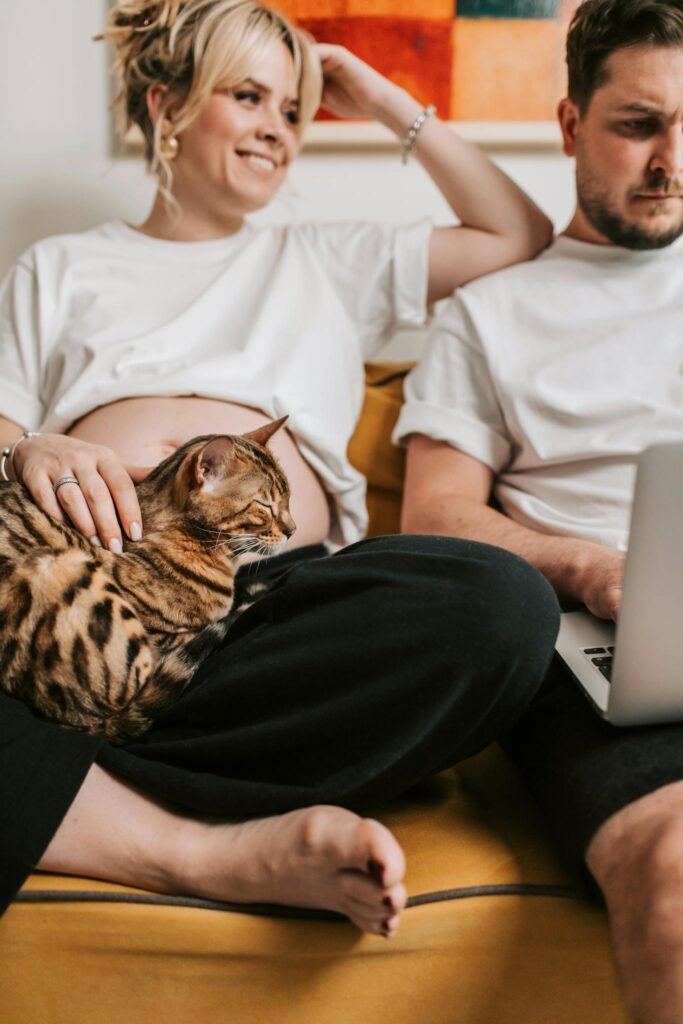
Recognizing and Managing Food Allergies in Bengal Cats
Food allergies can affect Bengal cats, just as they can affect any other breed of cat. Recognizing and managing food allergies is essential for maintaining your Bengal cat’s health and well-being. Here’s what you need to know:
- Monitor your Bengal cat for allergic reactions, such as skin irritations, diarrhea, vomiting, itching, or excessive grooming.
- Limit exposure to potential allergens, such as dairy products or certain plant protein sources like peas, when introducing new foods to your cat.
- Consider raw cat food, as it often contains fewer additives and potential allergens. Raw food diets can help minimize allergic reactions in some cats.
- Consult with responsible breeders for guidance on managing food allergies, as early age exposure can play a role in allergic reactions.
- Research commercial cat foods, as some ingredients or additives may trigger allergic reactions in Bengal cats. Look for foods specifically formulated for cats with allergies or sensitivities.
- If you suspect your cat has food allergies, consulting with your veterinarian is important for proper diagnosis and management.
Conclusion
In conclusion, it is crucial to understand the dietary needs of Bengal cats to ensure their optimal health and well-being. These beautiful and active cats require a diet that is rich in animal protein and fat, as well as essential vitamins and minerals. Carbohydrates should be limited in their diet, as they are not necessary for their nutritional needs.
When feeding your Bengal cat, it is important to follow feeding guidelines and establish a regular feeding schedule. Look for cat foods that contain high-quality ingredients and analyze the nutritional information on the labels.
It is also important to address common dietary concerns such as dealing with picky eaters and recognizing food allergies. By providing proper nutrition and addressing these concerns, you can ensure that your cat stays healthy and happy.
Remember, proper nutrition plays a vital role in the overall health and longevity of your kitty. So, take the time to understand their dietary needs and provide them with the best possible care.

